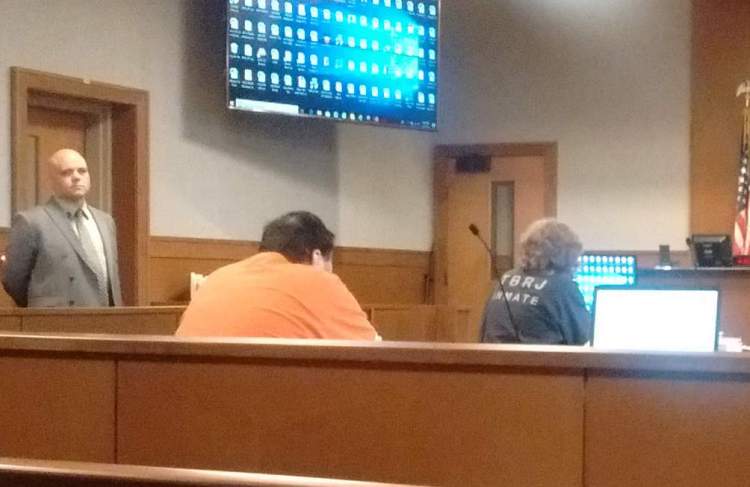BELFAST — A judge heard more than six hours of testimony from four witnesses Thursday about their interactions with Sharon Carrillo on the day her daughter Marissa Kennedy died and afterward.

Marissa Kennedy
Carrillo and her husband, Julio Carrillo, are charged with depraved indifference murder in the beating death of the 10-year-old on Feb. 25, 2018. They are accused of beating the girl regularly in the months before her death, as well as the day she died in the condominium they shared in Stockton Springs.
Sharon Carrillo’s attorneys were in court Thursday seeking to suppress statements she made to police on Feb. 25 and 26, 2018. They are also seeking to have Sharon Carrillo tried separately from her husband, who they say physically and sexually abused both his wife and Marissa.
The court heard from Cpl. Darrin Moody of the Waldo County Sheriff’s Office, Maine State Police Detectives Scott Quintero and Jason Andrews, and Dr. Robert Riley, a clinical neuropsychologist.
Sharon Carrillo cried several times while listening to testimony Thursday. Julio Carrillo, shackled at the ankles, did not speak or visibly react to the proceedings.
State prosecutors showed a video of a police walk-through of the crime scene with Sharon Carrillo, during which she showed Quintero the areas of Marissa’s body where she regularly hit her. Sharon Carrillo said her stepmother sent her text messages instructing her to abuse the child in various ways, including by standing on or putting pressure on Marissa’s calves as she knelt on the floor with her hands in the air. Police said no evidence of text messages has been recovered.
Defense attorneys Chris MacLean and Laura Shaw questioned the law enforcement officers about a photograph recovered from a cellphone shared by the Carrillos containing an image of mother and daughter, both unclothed and kneeling with arms raised, which the Carrillos both have said was a position Marissa was placed in when they beat her.
Sharon Carrillo’s lawyers argued the photo is evidence that she was abused by her husband, but police and prosecutors said one image is not enough to prove she was a victim.
“If I look at just one piece of information frequently, I would be misled,” Quintero testified.
Assistant Attorney General Donald Macomber asked if either defendant had described the circumstances of the photo. Quintero said Julio Carrillo told police Marissa was complaining that the position was uncomfortable, and that Sharon Carrillo offered to get in the same position to prove “it wasn’t that bad” and asked her husband to take the photo. Quintero said he did not ask Sharon Carrillo about the circumstances.
Both Quintero and Andrews testified that Sharon Carrillo had said her relationship with Julio Carrillo was good, and that she never indicated she was a victim of domestic violence.
Riley said there is evidence in Sharon Carrillo’s medical history of domestic violence. Prosecutors said the reports were all filed after Marissa’s death. Riley also testified that Sharon Carrillo has a low IQ, but based on several tests, she is not considered mentally ill or impaired.
Riley said Sharon Carrillo described Julio as “very abusive, manipulative and controlling.” She told Riley that Julio would hide her phone and identification and tell her there was a bomb under her car and that her family did not want to see her. She described herself as gullible for believing the things Julio told her, Riley said.
“She is more at risk than the average person” to be vulnerable to suggestion, the neuropsychologist said, later adding the test he used to determine her susceptibility to suggestion is considered by some in his field to be controversial. Riley said he never asked Sharon Carrillo about the circumstances of the photo recovered from the cellphone.
Testimony is expected to continue Friday, starting at 8:30 a.m.
Comments are not available on this story.
Send questions/comments to the editors.


